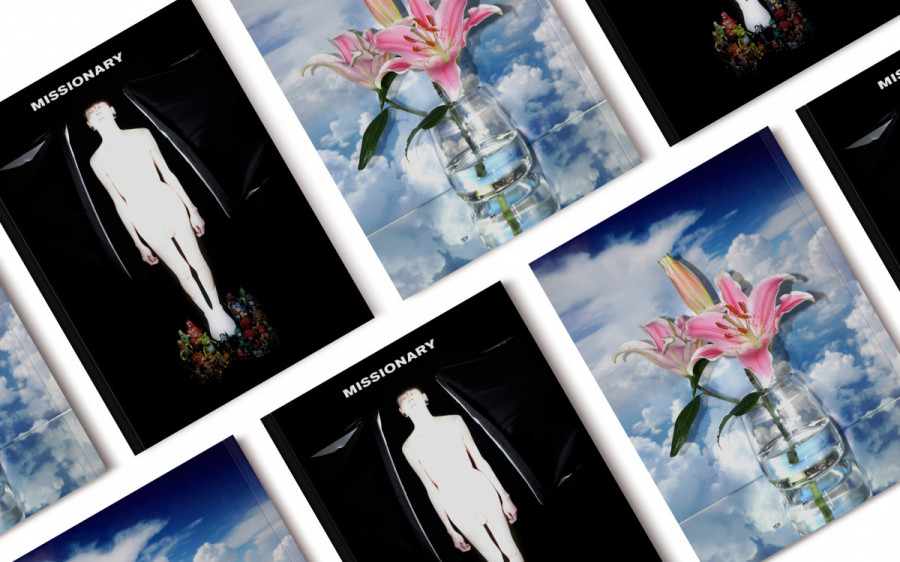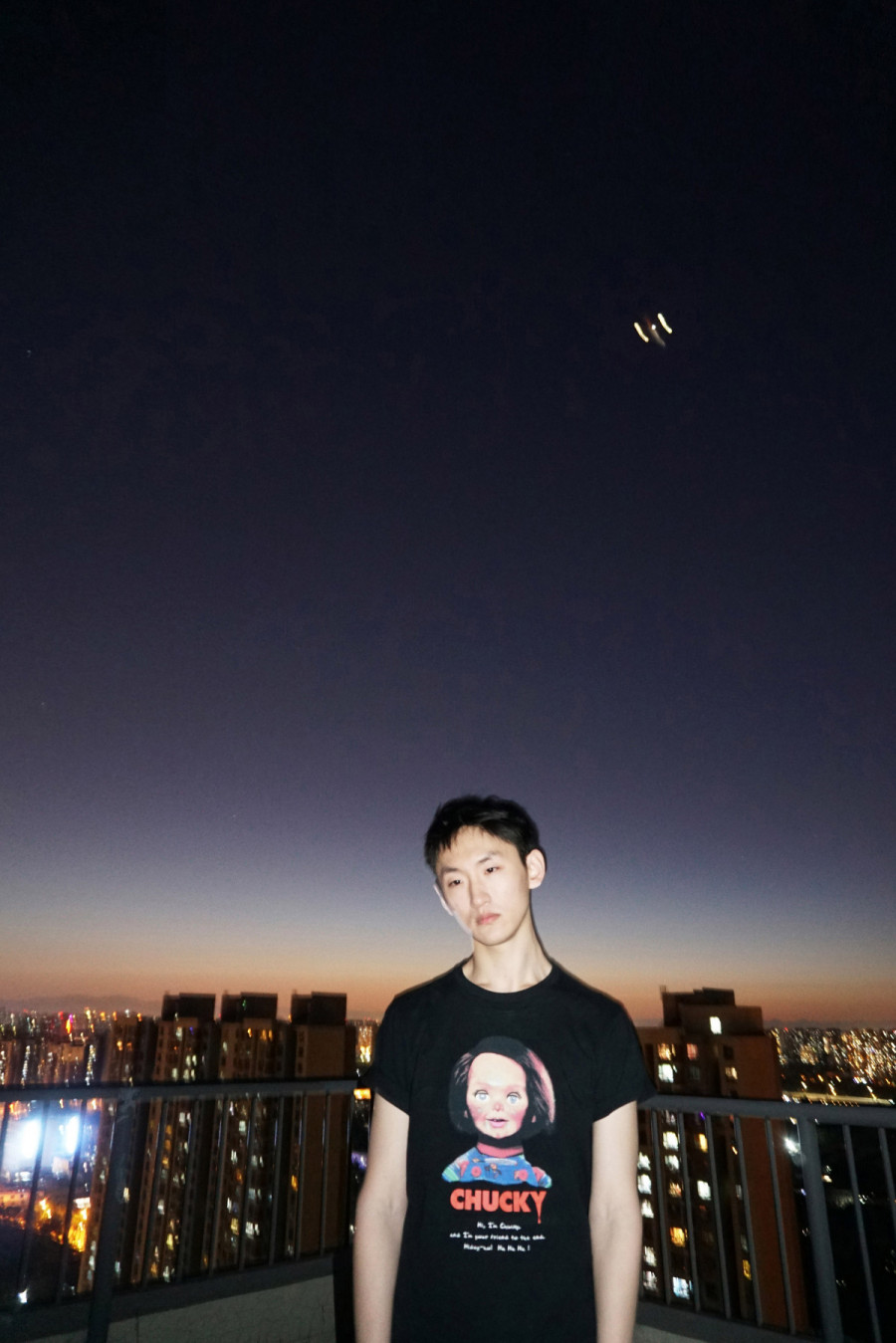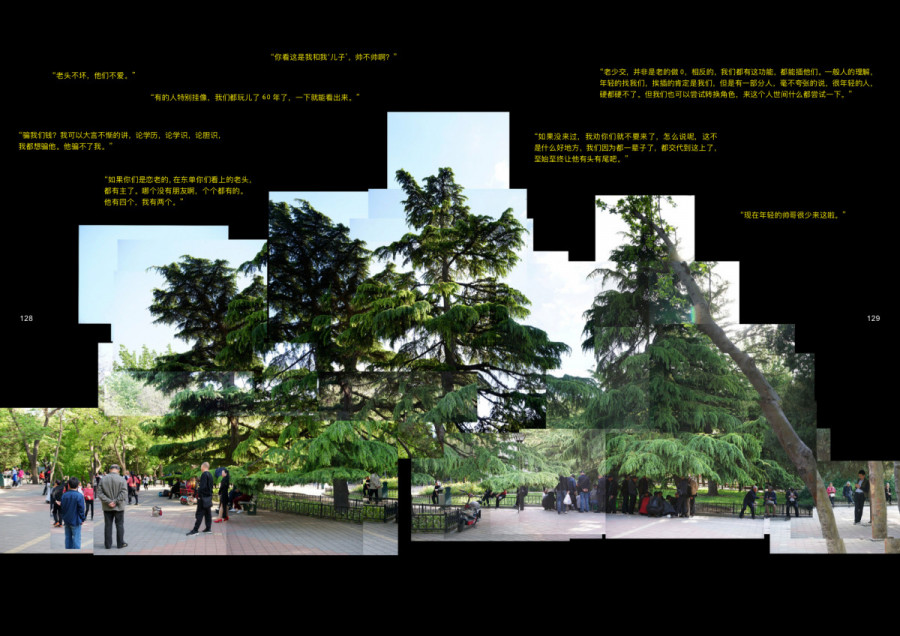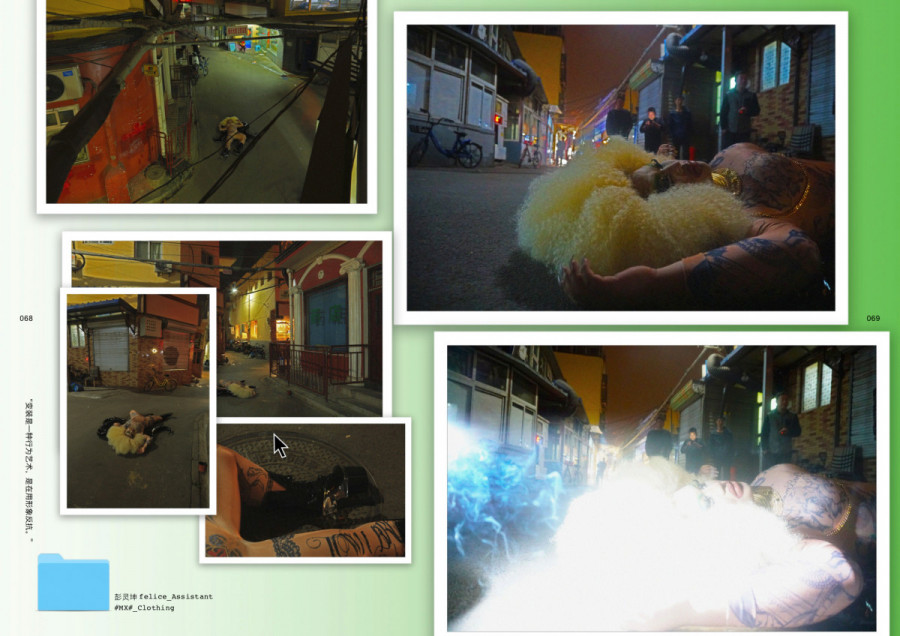‘MISSIONARY’: 200 Pages of Queerness in China
Concordia Student Co-Creates Underground LGBTQ+ Magazine
It’s in a small print shop in Beijing that 200 pages were assembled to form MISSIONARY, an independent magazine that focuses on the LGBTQ+ community in China.
The publication was created by three people, one of whom is Jiyang Zhang, a fourth-year international student in film production at Concordia.
Zhang is from Fushun, a small town in northeast China. The 27-year-old began his studies in engineering before switching gears and graduating from the television and radio journalism program at the Communication University of Zhejiang.
He moved to Canada to study film production in 2016. Here, he realized he enjoyed the freedom of artistic expression when behind the lens.
In 2018, Zhu Zhaokang and Yu Xinjie had the idea to put together a queer magazine and asked Zhang to join them in their project. This led to the creation of MISSIONARY.
Related“Everyone is a missionary in social media. Everyone can express their attitude and ideas on the internet and everyone seems to convince others,” said Zhang.
“Some communities and [their] ideas can’t be expressed in a loud way. We would like to do this in a magazine form,” he added.
The magazine is a side project—the three creatives behind it have other occupations.
Zhang is a full-time student, while both Zhaokang and Xinjie are freelance writers based in Beijing. Their collaboration is primarily online and consists of “a lot of phone calls,” said Zhang.
“The form, the content, and our expression is a unity. It’s alternative and private. Online, it’s not. It’s noisy.”
—Jiyang Zhang
The trio met working as writers and directors in a media company in China. They realized they weren’t passionate about their jobs and decided to use their spare time to focus on a project that truly spoke to them.
The pages of MISSIONARY come alive with stellar photography, colourful images, and a few articles in Mandarin. Free of ads, the publication is more of an art book, and while none of its few texts are poems, the thinking behind every page is deeply poetic.
The first issue revolves around male-identifying homosexuals in the public sphere, hence its name, Public. The team launched an open call looking for people who would like to contribute to the issue by sharing their personal stories. Released in September 2018, the debut publication sold close to 500 copies at 130 yuan each—around $25 CAD.
Zhang described Dongdan Park, a gay-friendly park that is a popular meeting ground for homosexuals in Beijing. The park is central to a two-page spread that shows the words as spoken by gay men after they were asked to describe their current situation.
“Some of them have still not come out. They have wives and grand-children. They use this park,” said Zhang.
The quotations are shown over a photograph of the luscious park, where the men in the issue were found and interrogated. It is common for homosexuals to come hide away in this park to meet their same-sex lovers, said Zhang.

“We didn’t want to have portraits of [them]. We don’t think it’s right to take pictures of their faces. We just want to know [about] their life at the moment.”
The piece aims to look know how people of the previous generation dealt with their sexuality in a conservative country.
While Public focused primarily on gay men, the second issue meant to appeal to a wider audience, according to Zhang. Staying faithful to the focus on the LGBTQ+ community, Appearance was released in June 2019 and presents a series of stories dedicated to the exploration of reflection.
“Although ambiguity and prejudice persist, they do not prevent us from building connections in the world,” reads the publishers’ description.
More than 50 members of the LGBTQ+ community were invited to participate in the making of the publication, that aimed to recognize the versatility of beauty which it calls the “measurement of image.” The 200-page magazine sold close to 200 copies at 270 yuan each—approx. $52 CAD.
“The Death of Drag Queen” is a photo essay for which different drag queens were asked to pose where they would like to die. From a busy city street to the comfort of their home, the queens protested by playing dead in all their glam as a form of response to the attacks drag queens and kings have endured for their appearance.
RelatedMasculinity is praised in Chinese culture, but also within the gay community. “If you’re being feminine in school or society, you may get bullied. said Zhang.
Men with a feminine appearance are often targeted victims of physical and verbal attacks, which is why the magazine chose to photograph drag queens to symbolize this issue, said Zhang.
He said that although nothing happened, the photoshoot in the middle of the street was a risky and inspiring experience.
The magazine held a small exhibition in a little art gallery for the launch of Appearance in June, said Zhang.

One significantly older man stood out from the crowd of art enthusiasts.
Zhang said the man must have been in his 50s, and although he asked a lot of questions, he didn’t seem genuinely interested and stayed for “a very long time.” “We think he might’ve been an undercover [police officer],” said Zhang.
When asked if there could be consequences if the magazine gets in the hands of the local authorities, Zhang said they aren’t sure.
“We don’t know the consequences at all. […] But we didn’t have any trouble. Everything’s alright for now.”
Because the magazine is independent and doesn’t have an ISBN code, it doesn’t need to adhere to censorship guidelines. Zhang said this is what makes the publication’s sensitive subjects “OK” for the eyes of Chinese authorities, as it stands in a grey zone.
The publication is currently sold through word-of-mouth marketing, promoted through friends, and sold online and occasionally at book fairs.
While working on the magazine is a passion, it is not a realistic full-time occupation for its creators anytime soon.
“We don’t make much money off it, and it costs a lot,” said Zhang.
The editorial team is brainstorming ideas for the third issue, but it’s too early to tell what to expect.
While the reach of an underground print magazine in China is limited—especially with a ban on western social media—Zhang said they will not go digital.
Not only do they think it is a safer approach, but digital would go against the principle of community.
“The form, the content, and our expression is a unity. It’s alternative and private. Online, it’s not. It’s noisy.”





2_600_375_90_s_c1.jpg)

2_600_375_90_s_c1.jpg)
_600_375_90_s_c1.jpg)